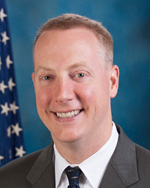
By Dr. Patrick Conway, CMS Deputy Administrator for Innovation and Quality and Chief Medical Officer
While we have accomplished a lot to make sure Americans have access to good, quality health care, continuing to reform our health care system by increasing quality and lowering costs will need everybody to be a part of the effort. Part of that will mean continuing important work with health care providers to reform health care delivery, efforts that have already shown promising results, including through Accountable Care Organizations (ACOs). ACOs are groups of doctors, hospitals, and other health care providers, who come together voluntarily to provide coordinated, high-quality care to their Medicare patients to help them deliver better care at lower cost. Learn much more about ACOs in our fact sheet.
The Centers for Medicare & Medicaid Services (CMS) announced two modifications to the design of the ACO Investment Model, which will help rural areas and small group practices gain more access to the benefits that ACOs have shown across the country. These two changes will newly allow ACOs starting in the Medicare Shared Savings Program in 2015 to apply in the upcoming application round, and it will remove the 10,000 or fewer assigned beneficiary eligibility criteria for rural ACOs that started in the Medicare Shared Savings Program in 2015 (or will start in 2016).
These two changes reflect the Innovation Center’s commitment to listening to suggestions and ensuring that demonstrations are widespread, including rural providers and smaller physician groups.
The application for the second round of the ACO Investment Model was made available for viewing on June 2nd. On July 1st, 2015, the application will open for ACOs that started in the Shared Savings Program in 2014 and 2015 – or are scheduled to start in 2016.
The ACO Investment Model is expected to provide a total of $114 million in upfront investments to up to 75 ACOs across the country. Making payments of shared savings in both upfront and ongoing amounts will help these ACOs invest in care coordination, health information technology, and population health platforms to help shift our health care system from one that provides reactive care to one that provides proactive, preventive care.
Through the CMS Innovation Center, this initiative will provide upfront and ongoing investments in infrastructure and redesigned care process to help eligible ACOs continue to provide higher quality care. This will help increase the number of beneficiaries that can benefit from lower costs and improved health care through Medicare ACOs. CMS will recover these payments through an offset of an ACO’s earned shared savings.
ACOs are one part of the overall effort provided by the Affordable Care Act to help lower costs and improve care and quality. For example, the Affordable Care Act has helped reduce hospital readmissions in Medicare by nearly eight percent between 2012 and 2013 – translating into 150,000 fewer readmissions – and quality improvements have resulted in saving 50,000 lives and $12 billion in health spending from 2010 to 2013.
For more information on the ACO Investment Model, please visit: http://innovation.cms.gov/initiatives/ACO-Investment-Model/.
This article was originally published on The CMS Blog and is republished here with permission.
